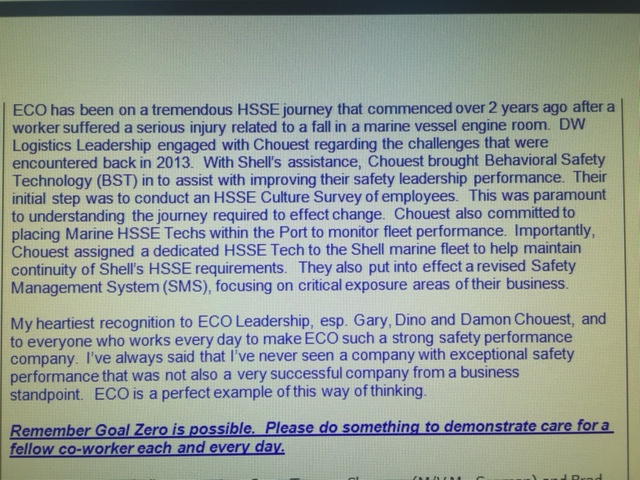and another report on the grounding, this time from the NSTB: Home
Same conclusion as the USCG one. Not the best timing as they’re prepping for their new Alaska adventure.
Feds rap Shell for poor planning in botched tow of 2012 Arctic drilling rig
Fuelfix - Posted on May 28, 2015 | By Jennifer A. Dlouhy
WASHINGTON — The National Transportation Safety Board on Thursday blamed the grounding of Shell’s Kulluk drilling rig on the company’s failure to adequately assess the risks of towing the vessel across predictably stormy Alaska seas in 2012.
The independent federal agency’s findings, released Thursday, represent the third major government report on what went wrong when Shell Oil Co. and its contractors tried towing the Kulluk across Gulf of Alaska waters in December 2012 — only to have the rig run aground on Sitkalidak Island following a failed five-day fight to get control of it.
“No single error or mechanical failure led to this accident,” the NTSB said. “Rather, shortcomings in the design of a plan with an insufficient margin of safety allowed this accident to take place. The plan was created to move the (mobile offshore drilling unit) at a time of year with a known likelihood of severe weather conditions for reasons unrelated to operational safety.”
The NTSB report comes at a pivotal time for Shell, which has asked federal regulators for permission to resume exploratory oil drilling in the Chukchi Sea as soon as July.
The Interior Department’s Bureau of Ocean Energy Management has already approved Shell’s broad plans to bore up to six wells in those Arctic waters during ice-free drilling seasons this summer and next. But the company is waiting on a handful of other authorizations, including drilling permits from the Bureau of Safety and Environmental Enforcement, before it can launch the work.
The botched Kulluk tow job came months after Shell had finished drilling the top portions of one well each in the Beaufort and Chukchi seas, when the company began moving the non-propelled drilling rig from Dutch Harbor, Alaska to a Seattle shipyard.
Shell contractor Edison Chouest began towing the Kulluk with its anchor handling vessel, the Aiviq on Dec. 21, 2012. But six days later, when the vessels ran into a series of storms near Kodiak Island, the tow line broke and on Dec. 28, 2012, Aiviq’s four engines failed. The Coast Guard tried but failed to connect a new tow line to the Kulluk, evacuated most of the Kulluk’s crew and delivered spare parts to the Aiviq, allowing partial engine power to be restored on the ship.
Although towlines were briefly reconnected between the Kulluk and the Aiviq as well as another tugboat, the Alert, on Dec. 31, once the connection to the Aiviq failed, officials instructed the struggling Alert to release its line for safety reasons.
That sealed the Kulluk’s fate.
Roughly a half hour later, at 8:48 p.m. on Dec. 31, the rig plowed into the rocky seabed on Alaska’s uninhabited Sitkalidak Island.
A Coast Guard probe, completed last year, blasted Shell and its contractors for deciding to tow the drilling rig across the “notoriously treacherous” Gulf of Alaska, asserting that financial considerations — including a potential multi-million dollar tax bill from the state of Alaska — played a role in the timing.
A separate Interior Department analysis also faulted Shell’s oversight of contractors, saying the company appeared to be focused “on compliance with prescriptive safety and environmental regulations . . . rather than on a holistic approach to managing and monitoring risks.”
Shell’s executive vice president for the Arctic, Ann Pickard, has stressed the company has radically improved its approach to overseeing contractors involved in its Alaska operations, with daily phone calls to share lessons learned among them, a detailed, down-to-the-minute operations plan outlining planned vessel movements and more Shell managers overseeing individual contractors.
Shell spokesman Curtis Smith said the company was reviewing the National Transportation Safety Board report.
“We have already implemented lessons learned from our 2012 season and have engaged extensively with the regulators,” Smith said. “As we prepare for a 2015 exploration season, we will continue to test and prepare our personnel, assets and contingency plans against the high bar stakeholders and regulators expect of an Arctic operator.”
